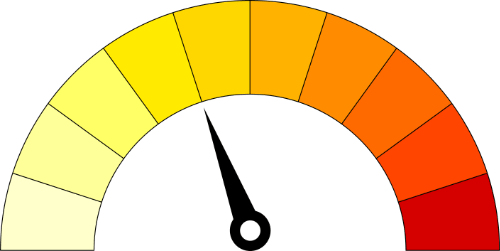Introduction
Have you ever watched the reality show Big Brother?
I’m ashamed to say, I have!
In my defense, with the amount of publicity Big Brother was getting on public TV at the time, it was difficult not to be curious about it. This was back in 2000, when nothing alike had ever been on national TV, and, let’s face it, I was a teenager (I always use that as an excuse for every embarrassing moment in my life).
Every single friend and family member of mine was watching it, discussing it, and reveling in the intrigues and mishaps of the contestants. Given this mass viewing at the time and a slight FOMO on my side, I conceded, and, I hate to admit, I enjoyed it!
I dunno. There was something intricately primal about watching other people go about their lives, listening to their private conversations, how they flirted, the fights, seeing them take a dump, you name it…
Of course, after the first season, the novelty quickly dissipated, and I couldn’t give a rat’s arse about the subsequent contestants (I actually had to google to find out that, as of 2025, it is still running in my home country!).
Why am I talking about Big Brother when I’m supposed to be reviewing Nineteen Eighty-Four by George Orwell?
Well, read on to find out!
Review
Nineteen Eighty-Four – 1984 from now on – is a thriller story that follows Winston Smith in a dystopian world where surveillance, censorship and state control dominate every aspect of the society. Winston abhors the ruling totalitarian regime (aka, the Party) and its eternal figurehead, the Big Brother. His wish to unveil the truth and discredit the Party clashes with his fear of getting caught, which would very likely mean death.
Being an Outer Party member and working in the Records Department at the Ministry of Truth, Winston “rectifies” historical records, by changing the outcomes to whatever the Party deems to be the truth. This privileged position means he has access to all the lies the Party spits out, but it also places him under strict surveillance.
Throughout the novel, Winston meets all sorts of individuals, some of whom conform to the Party’s ideology, and others who align with Winston’s rebellious thoughts towards the Party. The story culminates in a dramatic ending that will make you question the limits of human morality, solidarity and compassion.
No doubt, the book is superbly written. George Orwell was an astonishing and eloquent novelist, and his acumen for writing about societal and political issues is praiseworthy.
Remember that he wrote the novel in 1949, about four years after WWII, a time when tensions between communist USSR and Western powers were at their peak.
Orwell, a British citizen and a staunch advocate of democratic socialism, likely wrote 1984 as a social and political criticism of the totalitarian and propagandist regimes of his time. Indeed, the political stances of the Party partly resemble a composite of at least two totalitarian regimes in Orwell’s era: Nazi Germany and Stalin’s Soviet Union.
But Orwell goes even further. He reimagines a world where power not only becomes completely unchecked, but it is exacerbated and misused with the help of technological advances and progress in mind control of the masses. And it gets really gloomy, really tense, and really scarry!
Who doesn’t shiver at the descriptions of the Thought Police, the secret organization that monitors and punishes its citizens for the slightest hint of rebellion against the Party? Just imagine, that a single rebellious thought could trigger an incriminating facial expression that might be captured by the surveillance devices (the Telescreens)? Just imagine how frightened you would be every time you went to sleep, afraid that you might, unconsciously, speak out words that go against Party’s ideologies? Just imagine how afraid you would be of co-workers, friends and even your own family, for fear they would denounce you would they think you committed Thought Crime? Just imagine how afraid you would be to even frown for disagreeing with the Party? All of these acts would be punishable by torture, and possibly death, if the Party concluded you were a “criminal”.
And this suspense, this atmosphere of pervasive anxiety and tension is constant in the book. There is no reprieve…
Orwell was masterful in conveying fear, in describing a society which is rotten and choked from within. You feel the fear, the anxiety, the oppressive dread of those that wish to defy the Party, and you feel the desperation of those who unwittingly commit Thought Crime against their own wishes…
It’s also amazing that much of the original concepts introduced in the novel are almost prophetic. A case in point is the Telescreen, which most of us will probably associate with CCTV cameras, or more recently, the surveillance opportunities provided by the cameras, microphones and location tracking capabilities of our mobile phones.
If you are one taken with apocalyptic and pessimistic views of humanity, then this book might be right down your street.
Still, I have to say that the book felt disappointing…
For one, I found the pacing of 1984 very much deficient. You are presented with a story full of thriller potential – an oppressive society, a loner resisting within, a state-controlled police looming around every corner, a rebellion group promising a better future, a jubilant and feisty woman who takes pleasure in defying the Party’s principles – surely, there would have been plenty of elements with which to write a gripping story. But, for some reason, Orwell appeared to have vacillated in places where he should have kept readers on edge.
It really takes a while for the story to take off properly. Not much happens in the initial chapters; the description of Winston’s society is done fairly superficially with a focus on building up the atmosphere and Winston’s feelings – for example, there was a lot of focus on Winston’s thoughts, but I’m still not sure how a Telescreen (the devices that monitor people) should look like, or how it actually tracked people’s movements.
For much of the first half of the novel, you are thrown with phrases like Thought Crime, Newspeak, Doublethink and so on, with little context about how they actually came about. Furthermore, the dynamics of the ongoing war among the super-states are not at all clear. Then, about half-way through the novel, Orwell decides to include a lengthy description of the political philosophies relevant to the novel, and where the entire context of the war among the super-states and the resulting status quo is fully revealed.
But the biggest problem is not even the placement of this chapter, but rather the fact that it is a terribly dry read. Because the main protagonist is reciting the chapters of a textbook, the entire two chapters are bland and, frankly, very boring. If it were not for my compulsion to not skip pages, I’d have probably skipped this entire section. Reluctantly, I read it until the end, but I didn’t learn anything.
I felt this mode of presentation and narrative structure to be inadequate. In my opinion, the story wouldn’t have suffered as much had Orwell presented the historical context more gradually, and perhaps earlier on in the novel.
My second criticism relates to character development. For a book of 500+ pages, there could have been a better attempt at improving the depth of the supporting characters. For example, Julia was an interesting addition at about one third into the novel, and just as their relationship is becoming interesting, boom, they get separated.
The story ends unpredictably… and disconcertingly so. After the meeting with O’Brien, most readers will likely anticipate some kind of revolution, no matter how insignificant, either on a societal or personal level, with consequences great or small. But nothing of the sort ever sees the light of day. Never did I suspect that Winston’s and Julia’s efforts would be thwarted so soon . It was master plotting from Orwell.
1984 confronts you with such a perverse society that evil is used as a tool to maintain the status quo. You see, obedience is so deeply ingrained in both the structure of society and the minds of its people that betrayal is the order of the day. It is not perceived as wrong; it is simply what must be done. Even children are raised to become loyal enforcers, denouncing their own parents in the name of the Party.
People’s minds are imprisoned in a mindset of self-preservation, to the point that they will sacrifice even those they profess unconditional love to. In the end, 1984 will make you question your own humanity, your resilience, your capacity to think for yourself and make the right choices, in a world where survival equals submission. “How would I be, how would I behave if I were living in a society such as 1984?”.
Very uncomfortable points, I know. But that is exactly the spot Orwell wants you to be after reading this book.
Star rating
There are books that I really, truly wish I could admire, especially those timeless classic novels that have been praised for generations. However, it would be hypocritical of me to praise a work that I felt did not realise its full potential. Unfortunately, that was my impression of 1984.
Naturally, one should never forget the context in which novels with social and political commentaries are written. One should never forget the potential backlash and criticism the novel might receive by being written in such a volatile and politically sensitive period. One should also never forget that literature prior to the 21st century did not enjoy the wealth of research and editing tools that we currently take for granted. By these standards, 1984 is indeed a phenomenally well-written and well-researched book.
However, I reiterate, story-wise, 1984 is not super compelling. It has definitely interesting and original ideas, but, ultimately, it falls short of fully exploring them in a thrilling narrative.
Do I still recommend it? Oh, yes. Despite the shortcomings, I do think Orwell was incredibly creative in coming up with concepts such as a Doublethink, Newspeak and Thoughtcrime, and the manner he conveys a sense of tension and fear through the characters’ experiences is truly unique.
Here, at Mindlybiz, 1984 receives a star rating of 3 stars.
Bizarrometer
Is 1984 a surreal book? No, it isn’t. Is it a weird book? Well, mildly.
You see, the story won’t leave you confused about what you have just read. The novel isn’t bizarre, in the sense of involving serious dreamlike or symbolic storytelling. The main plot is fairly linear, with only sporadic flashbacks of Winston’s life to provide some context.
Still, we are reviewing it for a reason. Even if the overarching storyline is easy to grasp, there is no denial that the atmosphere is dark, tense, suspenseful and frightening – not in the horror-like sense, but rather because it feels so disturbingly familiar, almost like a warning or presage of what things have the potential to become.
Even though characters act as you would expect them to act under the circumstances, the particular workings of their minds exhibit strangeness, particularly in the way doublethink works (the acceptance that contradictory thoughts, ideas or beliefs are equally true, e.g., “war is peace” or “freedom is slavery”).
Moreover, the novel ends in full ambiguity. After knowing all the struggles and tribulations that Winston Smith has endured, what do you think the future holds for 1984’s dystopian world? Will the Party eventually be toppled? Will it survive, despite being historically unsustainable?
After reading the book, I still don’t know the answer to that question.
Here at Mindlybiz, 1984 gets a bizarrometer score of 2.





Leave a comment
Add Your Recommendations
Popular Tags